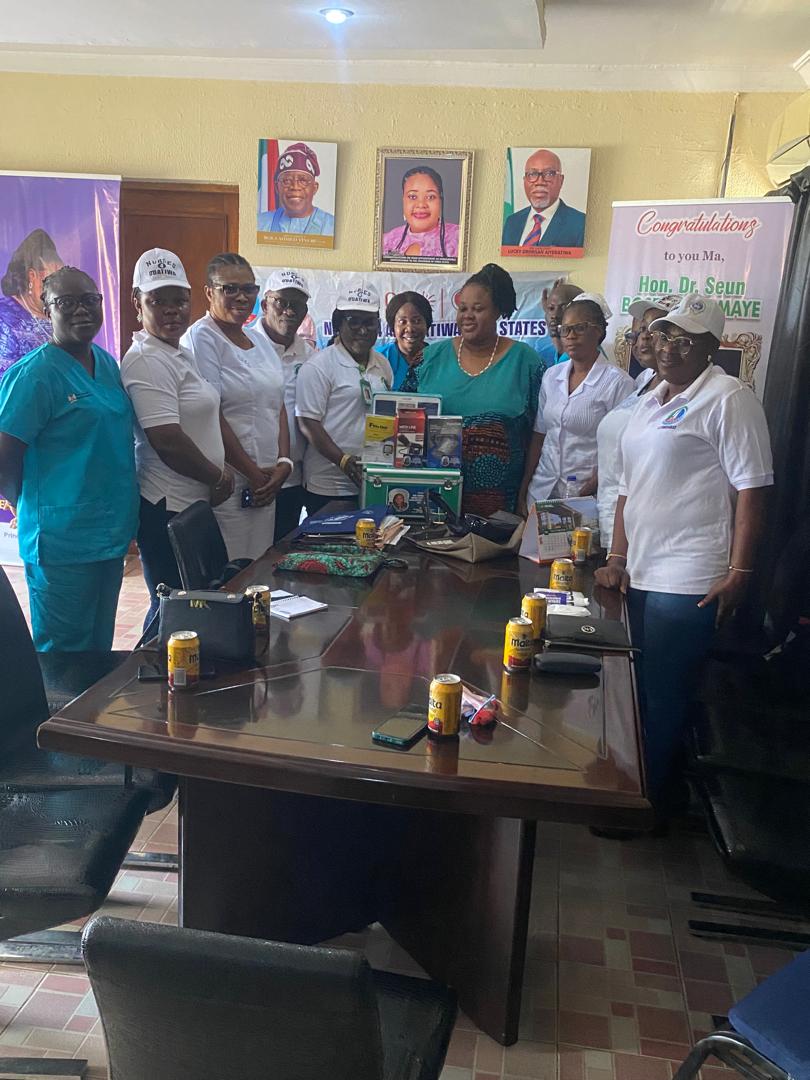Abuja, Nigeria – On Saturday, August 30, 2025, the Controller General of the Nigerian Correctional Service (NCoS), Sylvester Nwakuche, reaffirmed the Service’s unwavering commitment to transformative reforms aimed at strengthening internal security, improving rehabilitation programs for inmates, and enhancing the welfare of its personnel. Speaking at the Performance Review Retreat organized by the Minister of Interior, Dr. Olubunmi Tunji-Ojo, in Abuja, Nwakuche emphasized the NCoS’s determination to reposition Nigeria’s correctional facilities to meet global standards. The retreat, which brought together heads of agencies under the Ministry of Interior, served as a platform to evaluate progress, highlight achievements, and design robust strategies to align with President Bola Ahmed Tinubu’s Renewed Hope Agenda.
The Controller General’s remarks underscore the critical role of correctional reforms in Nigeria’s national development, balancing security, offender rehabilitation, and staff well-being. Nwakuche outlined ongoing initiatives to bridge systemic gaps and address emerging challenges, aiming to rebuild public confidence, strengthen professionalism, and contribute to the country’s internal security framework. This article provides a comprehensive analysis of the NCoS’s reform agenda, the context of the retreat, the challenges facing Nigeria’s correctional system, and the broader implications for national security and development.
A Commitment to Transformative Reforms
Addressing attendees at the Performance Review Retreat, Controller General Sylvester Nwakuche articulated a clear vision for the Nigerian Correctional Service, emphasizing reforms that align with global best practices. “Correctional reforms are critical to national development. They provide a balance between security, rehabilitation of offenders, and the well-being of personnel,” he stated. Nwakuche highlighted the Service’s ongoing efforts to transform correctional facilities into institutions that not only ensure security but also prioritize the rehabilitation and reintegration of inmates into society.
The NCoS’s reform agenda focuses on three key pillars: strengthening internal security, enhancing rehabilitation programs, and improving staff welfare. These pillars address longstanding challenges within Nigeria’s correctional system, including overcrowding, inadequate infrastructure, and limited resources for rehabilitation. By repositioning correctional facilities to meet global standards, the NCoS aims to create a system that is humane, secure, and effective in reducing recidivism while contributing to national stability.
Nwakuche assured stakeholders that the Service is committed to translating government policies into measurable outcomes. This includes implementing initiatives that enhance the professionalism of correctional officers, rebuild public trust in the system, and align with the broader goals of President Tinubu’s Renewed Hope Agenda. The agenda, launched in 2023, emphasizes economic diversification, security, and inclusive governance, with correctional reform playing a pivotal role in achieving these objectives.
The Performance Review Retreat: A Platform for Collaboration
The Performance Review Retreat, organized by the Minister of Interior, Dr. Olubunmi Tunji-Ojo, brought together heads of agencies under the Ministry, including the Nigerian Immigration Service, the Nigeria Security and Civil Defence Corps, and the Federal Fire Service, among others. Held in Abuja, the retreat provided a platform to review progress, showcase achievements, and design strategies for effective service delivery. The event underscored the Ministry’s commitment to inter-agency collaboration and synergy, aligning with the federal government’s emphasis on improving security and governance.
For the NCoS, the retreat was an opportunity to highlight its reform efforts and outline its vision for the future. Controller General Nwakuche used the platform to detail ongoing initiatives, such as upgrading custodial facilities, expanding vocational training programs for inmates, and improving working conditions for staff. The retreat also facilitated discussions on how agencies under the Ministry of Interior can work together to address common challenges, such as insecurity, inadequate funding, and logistical constraints.
Minister Tunji-Ojo, known for his proactive approach to governance, has prioritized reforms across the Ministry’s agencies since assuming office. The retreat reflects his commitment to fostering accountability, transparency, and innovation in the delivery of public services. By bringing together agency heads, the event aimed to create a unified strategy that aligns with the Renewed Hope Agenda, ensuring that reforms in the correctional system contribute to broader national development goals.
Strengthening Internal Security
One of the core pillars of the NCoS’s reform agenda is strengthening internal security within custodial facilities. Nigeria’s correctional system has faced significant security challenges, including high-profile jailbreaks, such as the 2022 Kuje Custodial Centre attack, which saw the escape of hundreds of inmates, including suspected terrorists. These incidents exposed vulnerabilities in the system, such as inadequate infrastructure, understaffing, and outdated security protocols.
To address these issues, the NCoS is implementing measures to enhance the security of custodial facilities. These include upgrading surveillance systems, improving perimeter fencing, and deploying advanced technology to monitor inmates and prevent unauthorized access. The Service is also collaborating with other security agencies, such as the Nigeria Police Force and the Department of State Services, to share intelligence and coordinate responses to potential threats.
Controller General Nwakuche emphasized that a secure correctional system is essential for national stability. “A secure correctional facility ensures that inmates are safely detained while undergoing rehabilitation, preventing them from posing a threat to society,” he stated. The NCoS’s efforts to strengthen internal security also involve training correctional officers in modern security techniques, ensuring they are equipped to handle emerging challenges.
Enhancing Rehabilitation Programs
Rehabilitation is a cornerstone of the NCoS’s reform agenda, reflecting a shift from punishment to rehabilitation and reintegration. The Nigerian Correctional Service Act of 2019, which rebranded the former Nigeria Prisons Service as the NCoS, mandates the provision of education, vocational training, and psychological support to inmates. These programs aim to equip inmates with the skills and mindset needed to reintegrate into society, reducing recidivism and promoting social cohesion.
The NCoS has introduced initiatives to expand access to education and vocational training in custodial facilities across the country. These include programs in literacy, computer skills, tailoring, carpentry, and agriculture, designed to provide inmates with employable skills. The Service is also partnering with non-governmental organizations and private sector stakeholders to enhance the quality and reach of these programs.
Controller General Nwakuche highlighted the importance of rehabilitation in breaking the cycle of crime. “Rehabilitation is not just about transforming inmates; it’s about transforming society by creating productive citizens who can contribute to national development,” he said. The NCoS’s efforts to improve rehabilitation programs are particularly significant in the context of Nigeria’s high recidivism rates, which are driven by factors such as poverty, unemployment, and lack of opportunities for ex-offenders.
The Service is also addressing the needs of vulnerable groups within the correctional system, such as women, juveniles, and foreign inmates. Specialized programs for these groups, including counseling and skills training, aim to address their unique challenges and support their reintegration. The collaboration with the Nigeria Immigration Service, as seen in recent initiatives in the Federal Capital Territory, is particularly important for managing foreign inmates and facilitating their repatriation where necessary.
Improving Staff Welfare
The welfare of correctional officers is a critical component of the NCoS’s reform agenda, as motivated and well-equipped personnel are essential for the success of any correctional system. Controller General Nwakuche acknowledged the challenges faced by staff, including inadequate salaries, poor working conditions, and limited opportunities for professional development. These issues have contributed to low morale and inefficiencies within the Service.
To address these challenges, the NCoS is implementing measures to improve staff welfare, including salary reviews, provision of better housing, and access to training and capacity-building programs. The Service is also working to enhance the safety of correctional officers, particularly in high-risk facilities, by providing protective equipment and improving security protocols.
“Investing in our personnel is investing in the success of our reforms. A motivated workforce is essential for maintaining security, supporting rehabilitation, and rebuilding public confidence,” Nwakuche stated. The emphasis on staff welfare aligns with the broader goals of the Ministry of Interior, which has prioritized improving working conditions across its agencies to enhance service delivery.
Challenges Facing Nigeria’s Correctional System
The NCoS’s reform agenda comes in the context of significant challenges within Nigeria’s correctional system. Overcrowding remains a critical issue, with many custodial facilities operating at over 200% capacity. The Kuje Custodial Centre, for example, has been reported to house thousands of inmates in spaces designed for far fewer, leading to poor living conditions, inadequate healthcare, and increased security risks.
Funding constraints have also hindered the implementation of reforms, limiting the NCoS’s ability to upgrade infrastructure, expand rehabilitation programs, and improve staff welfare. The reliance on outdated facilities and equipment further exacerbates these challenges, making it difficult to meet global standards for correctional management.
Security breaches, such as jailbreaks and attacks on custodial facilities, have exposed vulnerabilities in the system, undermining public confidence. The 2022 Kuje jailbreak, in which suspected terrorists escaped, highlighted the need for urgent reforms to address security lapses and improve coordination with other security agencies.
The NCoS also faces challenges in managing Nigeria’s diverse inmate population, which includes individuals convicted of minor offenses, serious crimes, and terrorism-related charges. Balancing the needs of these groups while ensuring security and rehabilitation requires a nuanced approach, supported by adequate resources and expertise.
The Broader Context: Nigeria’s Security and Development Challenges
The NCoS’s reform agenda is closely tied to Nigeria’s broader security and development challenges. The country has faced significant security threats, including terrorism, banditry, kidnapping, and communal violence, particularly in the northern regions. These challenges have strained the resources of security agencies and highlighted the need for a coordinated approach to internal security.
The correctional system plays a critical role in this framework, as it is responsible for detaining offenders, preventing recidivism, and contributing to public safety. By strengthening internal security and rehabilitation programs, the NCoS can reduce the risk of inmates returning to crime, thereby supporting broader efforts to address insecurity.
The emphasis on staff welfare and professionalism also aligns with Nigeria’s development goals, as a well-functioning correctional system contributes to social cohesion and economic stability. The Renewed Hope Agenda, launched by President Tinubu, prioritizes security, job creation, and inclusive governance, and the NCoS’s reforms are a key component of this vision.
Inter-Agency Collaboration and the Renewed Hope Agenda
The Performance Review Retreat highlighted the importance of inter-agency collaboration in achieving the goals of the Renewed Hope Agenda. The Ministry of Interior, under Dr. Olubunmi Tunji-Ojo, has fostered synergy among its agencies, encouraging them to work together to address common challenges. The NCoS’s collaboration with agencies like the Nigeria Immigration Service and the Nigeria Security and Civil Defence Corps is a practical example of this approach, as seen in recent initiatives to enhance inmate welfare and security in the Federal Capital Territory.
The retreat also provided an opportunity to showcase the achievements of the NCoS and other agencies, such as improvements in infrastructure, training, and service delivery. By aligning their efforts with the Renewed Hope Agenda, these agencies are contributing to Nigeria’s broader goals of economic diversification, security, and good governance.
Community and Stakeholder Reactions
The NCoS’s commitment to reforms has been met with optimism by stakeholders, including civil society organizations, human rights groups, and community leaders. Groups like Amnesty International Nigeria and the Prisoners’ Rights Advocacy Initiative have welcomed the focus on rehabilitation and staff welfare, urging the Service to prioritize transparency and accountability in implementing its reforms.
However, some stakeholders have called for greater clarity on the specific initiatives planned and their timelines for implementation. The issue of overcrowding, in particular, remains a concern, with advocates emphasizing the need for decongestion measures, such as alternative sentencing and parole systems. There is also a call for increased funding to support the NCoS’s ambitious reform agenda, as well as greater engagement with communities to ensure public support.
Opportunities and Challenges Ahead
The NCoS’s reform agenda presents significant opportunities to transform Nigeria’s correctional system and contribute to national development. By strengthening internal security, the Service can enhance public safety and reduce the risk of jailbreaks and recidivism. Expanding rehabilitation programs offers the potential to empower inmates with skills and opportunities, breaking the cycle of crime and promoting social inclusion. Improving staff welfare can boost morale and professionalism, creating a more effective and humane correctional system.
However, these opportunities come with challenges, including securing adequate funding, addressing systemic issues like overcrowding, and ensuring coordination with other agencies. The NCoS will need to navigate these challenges through strategic planning, stakeholder engagement, and innovative solutions, such as public-private partnerships and technology-driven reforms.
Looking Ahead: A Vision for a Modern Correctional System
The Nigerian Correctional Service’s commitment to reforms, as articulated by Controller General Sylvester Nwakuche, marks a pivotal moment in Nigeria’s journey toward a modern and humane correctional system. The focus on internal security, rehabilitation, and staff welfare reflects a holistic approach to addressing the challenges of the correctional system while aligning with national development goals. The Performance Review Retreat, organized by the Minister of Interior, underscores the importance of inter-agency collaboration and accountability in achieving these objectives.
As the NCoS moves forward, its success will depend on its ability to implement measurable reforms, engage with stakeholders, and secure the resources needed to transform custodial facilities. By creating a system that balances security, rehabilitation, and staff well-being, the NCoS can rebuild public confidence, contribute to national security, and support Nigeria’s vision of a prosperous and inclusive future.
In conclusion, the NCoS’s reform agenda represents a bold and forward-looking vision for Nigeria’s correctional system. The commitment to meeting global standards, as articulated at the Performance Review Retreat, offers hope for a system that not only detains offenders but also transforms lives and strengthens society. With sustained effort and collaboration, the NCoS can become a model for correctional reform, contributing to the realization of President Tinubu’s Renewed Hope Agenda and a brighter future for Nigeria.







